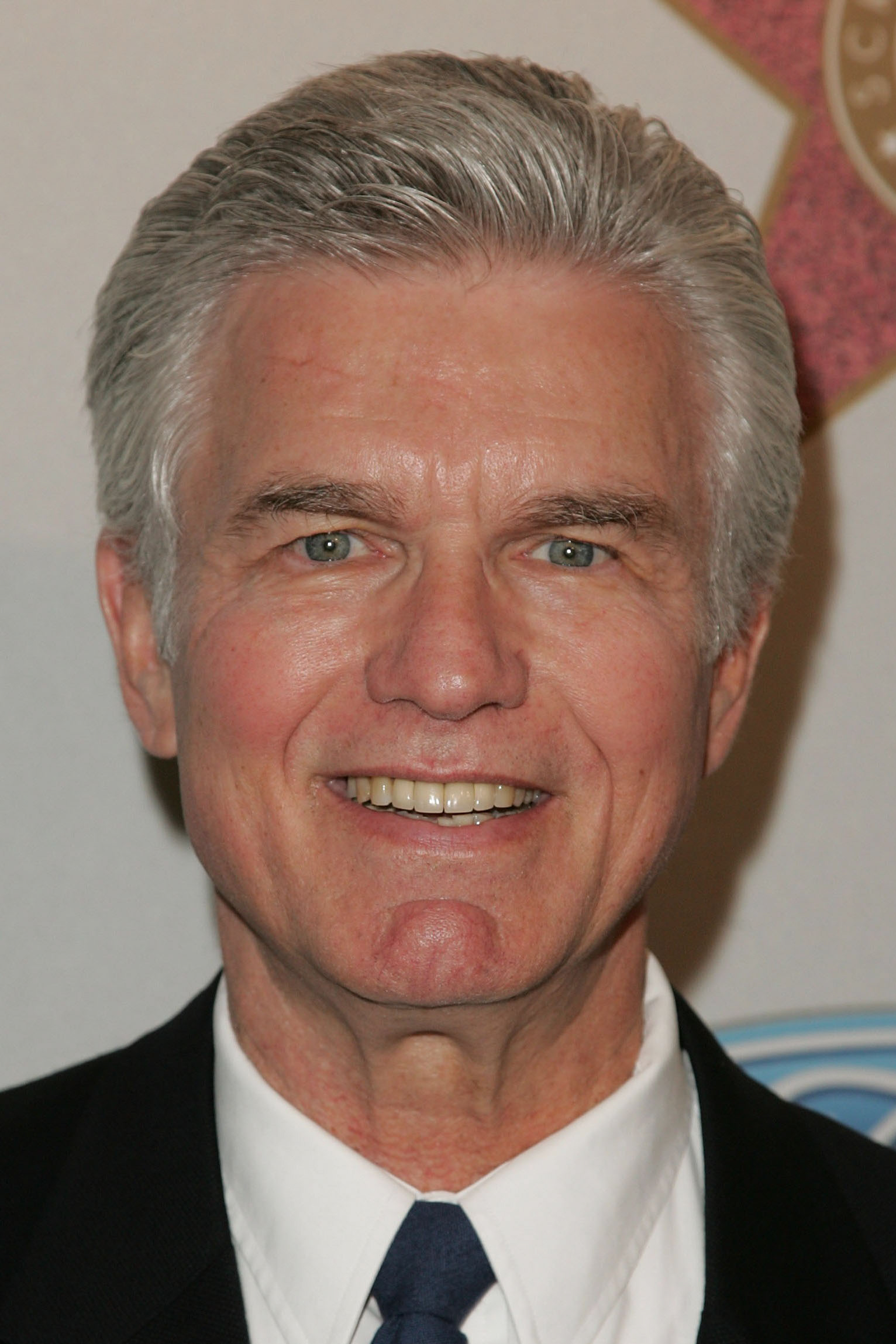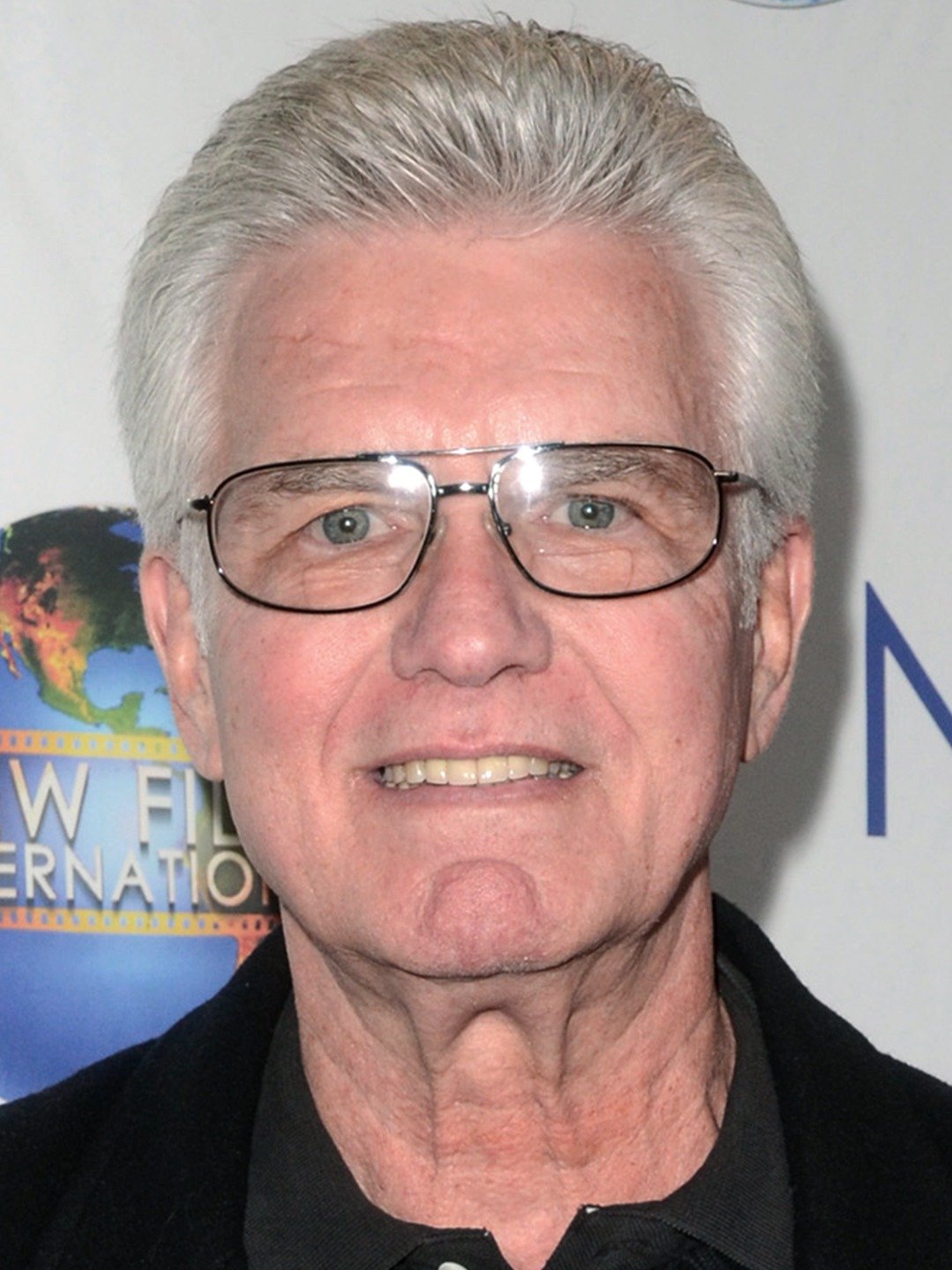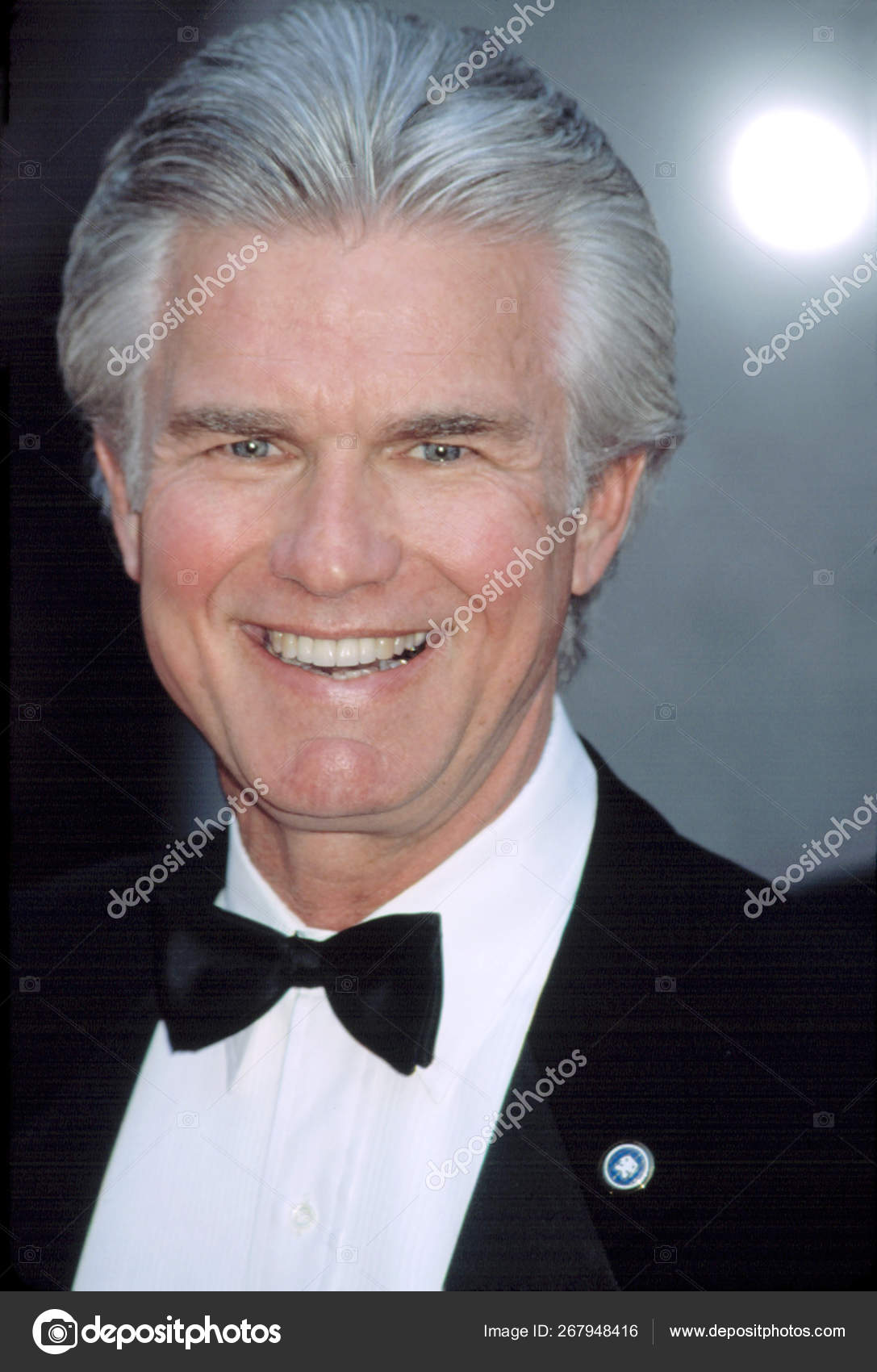Kent McCord: The Enduring Legacy Of A Classic TV Icon
In the vast constellation of Hollywood stars, some shine brightly for a fleeting moment, while others, like the steadfast actor Kent McCord, build a career rooted in quiet dedication and memorable performances. For many, his name immediately conjures images of the gritty, realistic police drama "Adam-12," a show that defined an era and cemented his place in television history. Yet, despite his significant contributions and a career spanning decades, there's a curious undercurrent in public discourse: why has Kent McCord been egregiously ignored by platforms like Datalounge, and perhaps, by the broader pop culture narrative? This article delves into the remarkable life and career of Kent McCord, exploring his journey from a young actor finding his footing to becoming an indelible part of television's golden age.
From his early days as Kent McWhirter under the wing of the legendary Ozzie Nelson to his iconic role as Officer Jim Reed, McCord’s path is a testament to perseverance and versatility. We will unravel the threads of his professional life, examine the impact of his most famous role, and ponder why this talented individual, who shared the screen with some of the biggest names, sometimes feels overlooked. Join us as we celebrate the man behind the badge and explore the enduring legacy of Kent McCord.
Table of Contents
- Biography: The Early Life of Kent McCord
- Personal Data: Kent McCord
- The Ozzie & Harriet Connection: A Career Born from Mentorship
- Adam-12: A Defining Role for Kent McCord
- Beyond the Squad Car: Kent McCord's Diverse Roles
- The Unsung Hero: Why the Oversight of Kent McCord?
- A Look at Contemporaries and Kent McCord's Place
- The Enduring Appeal of Kent McCord
Biography: The Early Life of Kent McCord
Born Kent Franklin McWhirter on September 26, 1942, in Los Angeles, California, Kent McCord's journey into the entertainment world began quite literally in the heart of the industry. Growing up in the San Gabriel Valley town of Baldwin Park, California, he was immersed in a region that often served as a backdrop for the very shows he would later star in. His early life, while not immediately pointing to a career in acting, laid the groundwork for a disciplined and grounded approach to his craft. Unlike many who chase fame from a young age, McCord’s entry into Hollywood was more organic, influenced by connections that would prove pivotal.
Before adopting the stage name Kent McCord, he was known by his birth name, Kent McWhirter. This period of his life is crucial for understanding the foundational relationships that would shape his career. It was during these formative years that he developed a connection with a family that would become synonymous with classic American television: the Nelsons. This relationship, particularly with Ozzie Nelson, provided him with an invaluable entry point into an industry often difficult to penetrate. His transition from McWhirter to McCord was not just a change of name but a symbolic step into a professional identity that would become recognizable to millions of television viewers.
Personal Data: Kent McCord
To provide a clearer picture of this esteemed actor, here is a quick overview of some key personal and professional details:
| Category | Detail |
|---|---|
| Full Birth Name | Kent Franklin McWhirter |
| Date of Birth | September 26, 1942 |
| Place of Birth | Los Angeles, California, USA |
| Hometown | Baldwin Park, California, USA |
| Known For | Officer Jim Reed in "Adam-12" |
| Early Career Name | Kent McWhirter |
| Key Mentorship | Ozzie Nelson |
| Spouse | Cynthia Lee Curtis (married 1962) |
| Children | Kristen, Megan, Kelly |
The Ozzie & Harriet Connection: A Career Born from Mentorship
It's a lesser-known fact, but one that significantly shaped his early trajectory: Kent McCord owes his career to Ozzie Nelson. This statement, often heard among those familiar with classic television history, highlights the profound influence the patriarch of the iconic "The Adventures of Ozzie and Harriet" had on McCord's professional beginnings. Before he became a household name as Officer Jim Reed, he was billed on episodes of "Ozzie and Harriet" as Kent McWhirter. This wasn't just a casual appearance; Nelson, recognizing the young man's potential, took him under his wing, offering him various roles and opportunities that served as an invaluable apprenticeship in the world of television production.
Ozzie Nelson was known for nurturing talent, and McCord was one of his beneficiaries. Appearing in various capacities on "The Adventures of Ozzie and Harriet" gave McCord a firsthand education in acting, timing, and the mechanics of a successful television series. These early roles, though often minor, allowed him to hone his skills, understand the rhythm of a set, and gain exposure in a highly competitive industry. It was during this period that he worked alongside Rick Nelson, Ozzie and Harriet's son, forming a friendship that would last for years. The mention of Rick Nelson on various lists of classic TV figures often prompts the question, "But where's his longtime buddy Kent McCord?" This sentiment underscores the deep, albeit sometimes overlooked, connection between McCord and the Nelson family, a connection that truly launched his career and set the stage for his future successes.
Adam-12: A Defining Role for Kent McCord
For many, the name Kent McCord is inextricably linked to the groundbreaking police procedural "Adam-12." Does anyone remember the classic TV show "Adam-12" that ran from 11/21/1968 to 8/26/1975? This series, a product of Jack Webb's meticulous attention to detail and realism, became a staple of American television, offering viewers an unprecedented look into the daily lives of Los Angeles Police Department officers. McCord's portrayal of Officer Jim Reed, the earnest and often by-the-book junior partner, alongside Martin Milner's seasoned Officer Pete Malloy, captured the essence of police work with a level of authenticity rarely seen on screen at the time. The show's success was not just in its dramatic narratives but in its ability to humanize law enforcement, making the characters relatable and their challenges palpable. MeTV has resurrected the old "Adam-12" series, bringing that beautiful hunk of man Kent McCord and the cutie pie Marty Milner back into living rooms, reminding a new generation of their undeniable chemistry and the show's enduring appeal.
The Dynamic Duo: Milner and McCord
The core of "Adam-12"'s appeal lay in the believable partnership between Pete Malloy and Jim Reed. Martin Milner, as the senior officer, brought a calm authority and a world-weary wisdom to Malloy, while Kent McCord's Jim Reed was the eager, observant rookie who learned the ropes from his experienced partner. Their on-screen chemistry was palpable, making their interactions feel natural and their camaraderie genuine. This dynamic was crucial to the show's success, as much of "Adam-12" relied on the subtle nuances of their conversations and reactions within the confines of their patrol car. Milner died a few years back, but McCord is still great, a testament to his enduring presence and the lasting impact of their on-screen partnership. Their portrayal of LAPD officers Pete Malloy and Jim Reed became iconic, setting a standard for police dramas that followed. The show’s format, often presenting a series of short, interconnected incidents rather than a single overarching plot, highlighted the diverse and unpredictable nature of police work, all filtered through the eyes of this compelling duo.
The Realism of Adam-12 and Its Impact
"Adam-12" was celebrated for its commitment to realism, a hallmark of producer Jack Webb's work. The show meticulously depicted police procedures, jargon, and the day-to-day challenges faced by officers. This dedication to authenticity was a major draw, distinguishing it from more fantastical crime dramas of the era. Viewers were not just entertained; they were educated about the realities of law enforcement. This commitment extended to the details, from the types of calls officers responded to, to the equipment they carried. The show’s influence stretched beyond entertainment, shaping public perception of police work and inspiring countless individuals to pursue careers in law enforcement. The legacy of "Adam-12" continues to resonate, with its episodes still being aired, allowing new audiences to appreciate its groundbreaking approach and the compelling performances of Kent McCord and Martin Milner.
The Iconic Sidearm of Malloy and Reed
In keeping with the show's commitment to authenticity, even the specific equipment carried by the officers was accurately portrayed. A common question among fans and firearm enthusiasts is: What S&W sidearm did Pete Malloy (Martin Milner) and Jim Reed (Kent McCord) carry? Throughout the series, both officers were typically seen carrying the Smith & Wesson Model 15 .38 Special revolver. This choice was historically accurate for the period, as the Model 15 was a standard issue sidearm for many police departments, including the LAPD, during the late 1960s and early 1970s. The attention to such minute details further cemented "Adam-12"'s reputation for realism and contributed to its educational value, making it more than just a fictional drama but a quasi-documentary of police life.
Beyond the Squad Car: Kent McCord's Diverse Roles
While "Adam-12" undoubtedly remains his most iconic role, Kent McCord's career extends far beyond the confines of the LAPD patrol car. He has demonstrated remarkable versatility across various genres and platforms, proving himself to be much more than a one-role actor. After "Adam-12" concluded, McCord continued to work steadily in television and film, taking on roles that showcased his range and commitment to his craft. He appeared in numerous guest spots on popular shows, often playing characters that diverged significantly from the earnest Officer Reed. His film credits, though perhaps less prominent than his television work, further illustrate his dedication to acting.
One interesting aspect of his career, especially for those who watched his shows, is that many of the same actors showed up in them. This speaks to the close-knit nature of the Hollywood community, particularly among character actors and those working within specific production circles. For example, Bobby Troup, William Boyett, Tim Donnelly, Kent McCord, and Marco Lopez are just a few names that frequently appeared in Jack Webb's productions or other series of the era. This recurring ensemble created a sense of familiarity for viewers and often highlighted the strong professional relationships built behind the scenes. McCord's ability to seamlessly transition between roles, from dramatic to comedic, and his consistent presence on screen, underscore a career built on solid performance rather than fleeting fame. He might not always have been the lead, but his reliable presence and compelling portrayals always added significant value to any production he was a part of.
The Unsung Hero: Why the Oversight of Kent McCord?
Despite his undeniable contributions to television and his memorable performances, particularly as Officer Jim Reed, there's a persistent question that arises among his fans: "Why has Kent McCord been egregiously ignored by Datalounge?" This sentiment reflects a broader perception that, compared to some of his contemporaries or even actors with less extensive filmographies, Kent McCord doesn't always receive the same level of recognition or pop culture discussion. Several factors might contribute to this perceived oversight.
Firstly, "Adam-12," while immensely popular and influential, was a procedural drama focused on realism rather than high-stakes personal melodrama. The characters, including Jim Reed, were designed to be relatable and professional, not larger-than-life figures prone to dramatic personal crises. This grounded approach, while effective for the show's premise, might have led to the actors being seen more as extensions of their roles rather than as individual celebrities. Secondly, McCord's career, while consistent, didn't always involve the kind of blockbuster film roles or tabloid-generating personal life that often keeps actors in the public eye. He was a working actor, dedicated to his craft, often taking on supporting roles or starring in long-running television series that, while successful, might not generate the same level of nostalgic buzz as some other genres.
Furthermore, the nature of fame itself has evolved. In an era dominated by social media and constant celebrity news, actors who built their careers in a different media landscape might find their legacies discussed in more niche forums rather than mainstream outlets. However, the fact that fans actively question his absence from such discussions indicates a strong, albeit perhaps quieter, appreciation for his work. It suggests that while he might not be a trending topic, his impact on those who watched his shows remains profound and enduring.
A Look at Contemporaries and Kent McCord's Place
When discussing actors of the 1970s, it's common to hear names like 1970s Michael Douglas (yum), James Macarthur, and of course, Kent McCord. These actors, along with others such as Lee Majors, Richard Hatch, Chad Everett, and David Soul, represent a generation of television and film stars who became household names during a transformative period in media. While each carved out their unique niche, Kent McCord’s place among them is distinct. Unlike some who might have been known for a single, charismatic role or a particular genre, McCord’s strength lay in his reliability and his ability to embody the everyman hero.
Michael Douglas, for instance, transitioned from television success ("The Streets of San Francisco") to a highly successful film career, becoming a major Hollywood leading man. James Macarthur was beloved for his role in "Hawaii Five-O." Lee Majors found fame in action-adventure series like "The Six Million Dollar Man," and David Soul was iconic as Hutch in "Starsky & Hutch." Kent McCord, while equally iconic in "Adam-12," represented a different kind of heroism—one rooted in quiet duty and everyday challenges. His appeal was less about larger-than-life heroics and more about the grounded reality he brought to his characters. This comparison highlights that while he might not always be mentioned in the same breath as those who crossed over into mega-stardom, his consistent presence and the quality of his work earned him a revered spot in the pantheon of classic television actors. His legacy is one of authenticity and dedication, qualities that resonate deeply with audiences who appreciate substance over sensationalism.
The Enduring Appeal of Kent McCord
The continued re-airing of "Adam-12" on channels like MeTV serves as a powerful reminder of Kent McCord's enduring appeal and the timeless quality of his work. Even decades after its original run, the show continues to captivate audiences, both new and old, largely due to the compelling performances of McCord and Milner. The simplicity and realism of "Adam-12" stand in stark contrast to the often complex and flashy dramas of today, offering a refreshing glimpse into a different era of television storytelling. McCord’s portrayal of Officer Jim Reed is a masterclass in understated acting, conveying depth and emotion through subtle expressions and believable dialogue rather than overt theatrics.
His career, which began with the mentorship of Ozzie Nelson and blossomed through his iconic role in "Adam-12," is a testament to the power of consistent, quality work. While he may not always be at the forefront of every pop culture discussion, the loyalty of his fanbase and the continued appreciation for his body of work speak volumes. The question of "why has Kent McCord been egregiously ignored" by certain platforms is perhaps less about his lack of impact and more about the evolving nature of celebrity and media coverage. For those who remember and appreciate classic television, Kent McCord remains a beloved and respected figure, a true professional whose contributions to the small screen are both significant and lasting. His legacy is secure, etched into the memories of generations who grew up watching him patrol the streets of Los Angeles, bringing integrity and humanity to every role he played.
In conclusion, Kent McCord’s journey from Kent McWhirter to a celebrated television icon is a compelling narrative of talent, dedication, and the profound impact of a well-crafted performance. His foundational years with the Nelson family, his defining role in "Adam-12" alongside Martin Milner, and his consistent work across various productions underscore a career of quiet excellence. While the spotlight may not always have shone brightest on him compared to some contemporaries, his influence on television history and the hearts of his viewers is undeniable. We hope this article has shed light on the remarkable career of Kent McCord and encouraged you to revisit his memorable work. What are your favorite memories of Kent McCord's performances? Share your thoughts in the comments below, and consider exploring other classic TV articles on our site to continue your journey through television history!

Kent McCord From Adam-12 Icon To Environmental Activist

Kent McCord - Actor

Kent Mccord Nbc 75Th Anniversary 2002 – Stock Editorial Photo